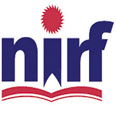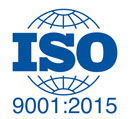
RAJA PEARY MOHAN COLLEGE
Uttarpara, Hooghly, West Bengal
A heritage college established in 1887; Affiliated to University of Calcutta NAAC accredited with B grade (2.7); ISO 9001:2015



A heritage college established in 1887; Affiliated to University of Calcutta NAAC accredited with B grade (2.7); ISO 9001:2015


BEST PRACTICE 1
Objectives of the Practice
An exemplary citizen is made, not born. It is important to be part of an education process that instills moral standards to create more civil and democratic societies. It nourishes students through the purposive practice of socially relevant values and promotes respect and understanding of diversity beyond cultural, religious, and ethnic differences.
The Context
The college believes that students need to be equipped with essential life skills and values needed to navigate through the various challenges of life. Students, on the brink of adulthood, need special attention to protect them from developing mental health issues. The course goes beyond the confines of the classroom so that the students can take part in various social service assignments that will help them to interact and mingle with society at large.
The Practice
•. To formalize the idea, Raja Peary Mohan College started a 32-contact-hour Certificate Course on Value Education and Indian Culture from the session 2018-19 in collaboration with Ramakrishna Mission Vivekananda Centenary College, Rahara under a MoU, signed by both parties on 12th January 2019 on the Birthday of Swami Vivekananda.
• Students of all streams mandatorily pursue this course during their 2nd semester. Conducted by the Department of Philosophy, classes are held once a week, every Saturday. They are accommodated within the routine so that they do not interfere with the regular classes. Besides theory classes, there are also practical classes where different social service assignments like working with the disabled, spending hours in blind schools, working in old age homes, feeding the needy, teaching in the slums, promoting awareness campaigns of hygiene, drug addiction, etc. are given to the students.
•. There is a Bengali textbook based on a structured syllabus, titled “Jiban Sopan”, published by the college. The syllabus is designed by both colleges with both theory, practical, and project work.
•. Constant monitoring is done through proper assessment procedures like attendance, individual leadership in practical sessions, and project work.
• India follows a social welfare model, so social value is an important part of the culture of this country. An important aspect of the value education system in India relates to the development of the spirit of national identity and patriotism in children. Values such as equality, fraternity, and justice can promote inclusivity where all members of the society feel included irrespective of their colour, culture, economic or social background, caste, religion, gender, or community. The National Curriculum Framework (NCF) 2005 and NEP 2020 strongly advocate values like cooperation, respect for human rights, tolerance, justice, responsible citizenship, diversity, reverence towards democracy, and peaceful conflict resolution.
•. One of the constraints that the college faced was the integration of Value Education classes into the routine. The routine is already congested due to the introduction of the CBCS semester system and later NEP 2020 syllabus coming into play. However, it could be resolved mainly due to the priority given by the college on the necessity of Value Education. There was also the issue regarding the availability of classrooms as Value-Education classes needed to accommodate a large number of students but that was solved with the active help of the Routine Sub-Committee.
Evidence of Success
• Students actively attend classes and perform all assignments. Hard data shows that in the last 5 academic years, 6,226 students directly benefitted from the course.
• Special interest is shown by them in the practical-based project work where they do many social works on their own, starting from cleaning the college campus, teaching the slum children, helping their parents in household activities, visiting and working in the orphanage and old age homes.
• Many students enter college lacking self-confidence but graduate as confident, happy individuals who believe in their worth and effectively utilize the important soft life skills that they have learned in college.
Problems Encountered and Resources Required
One of the problems faced was the difficulty of framing a holistic syllabus as there are none readily available. The teachers followed Martin Seligman and Christopher Peterson's Values in Action (VIA) model. However, the college adapted it to the Indian context. The collaboration with Ramakrishna Mission Vivekananda Centenary College not only solved the conundrum but also provided a platform to create an innovative textbook for the course.
The college also faced trying times during the pandemic years but it never stopped imparting Value Education.
Notes (Optional)
During the 1999 UNESCO General Conference, several representatives expressed their concern about strengthening the value of education for children. Building on this, UNESCO launched an international initiative on "Early Childhood and Values Education" in early 2000. Our holistic course takes inspiration from that charter and makes Value education part of a student’s daily life. It also ensures that values are inculcated through the touchstone of Indian culture, thereby making it relevant for students of our college.
Click here to look at the supporting documents
BEST PRACTICE 2
Objectives of the Practice
A Comprehensive 360-degree Counselling program involves Psychological Counselling, Career Counselling, and Academic Counselling through the Mentor-Mentee Programme the college has an active Psychological Counselling Cell, a dynamic Career counseling Cell and also carries out a well-structured Mentor-Mentee programme. Student Profiling, done scientifically ensures focussed engagement of Mentorship.
The Context
It was frequently observed that mere academic counseling doesn’t solve the problems of the students who need additional support for their mental health and career needs. All three are intimately related to each other and contribute to the holistic development of a student in terms of his/her outlook, and prospects. Post post-pandemic world has made this approach more relevant than ever before as it helps to nurture every aspect of a student’s developmental arc.
The Practice
a. As a preamble to Counselling, the college adopts scientific methods to create a database ‘Profiling of Students.’ This Learner Centric Practice ensures focus-based delivery of counseling practices.
b. The Psychological Counselling Cell deals with emotional, behavioral, and cognitive problems for the welfare of our students. The Cell supports our students with Individual and Group Counselling, Psychiatric Services, Workshops, Crisis Intervention, Stress Management and Systematic Desensitisation.
c. The students are provided active support by the Career Counselling Cell which activates various placement drives and acts as a liaison between the College and several industrial houses. It started Competitive Exam Training and Soft-skill Development classes, through the faculties of the College. The College has signed a MoU with Internshala to conduct internships for the students and provide placement opportunities to them in several reputed companies. The Cell arranges Seminars/webinars with Career Guidance Institutes to enable students to understand the present job scenario and also develop means to improve their CVs that will give them an advantage in the job market.
d. Academic counseling through the Mentor-Mentee program ensures student welfare and better performance in academics, active participation in co-curricular and extra-curricular activities through mutual support, and an amiable learning environment.
Evidence of Success
Problems Encountered and Resources Required
Notes (Optional)
To enable focus-based counseling, the college Profiles the Students. This Learner-centric practice helps in understanding the demographical and educational conditions of the candidates as well as their aptitudes in specific fields like Academic Score, Knowledge Score, Propensity to use tools, communicate, think, accept tasks, and Intelligence Score. This data provides the basis for Gq and Mq mapping which is represented in a bar graph which is then compared to those of their Peer Groups.